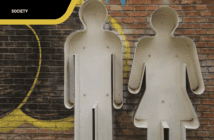By CPA Martin Osundwa Matiro
The discussion about corruption has been going on even before Kenya gained independence. We have heard about it ever since we were born. Perhaps we should now ask ourselves ‘hard questions’ about the state of corruption in our country. In many instances in the past, we have sought solutions from those who seem to have “properly” dealt with the vice in their own countries.
As Accountants in this beloved country called Kenya or region of Eastern Africa, it may be time to explore avenues which we have been shying away or rather making heavy assumptions in the manner of fighting corruption which this article would like to explore.
Colonial legacy
Social Scientists have time and again pointed to us the source of our corruption as having been reinforced and rooted in the impact of a colonial government in our country and region. It may sound tiresome to hear this excuse as some people may rightly indicate the fact that in the 60 years of our history, this problem should have been overcome. Such a position makes a good case; however, it is merely sentimental and does not interrogate the reality that the country has been grappling with for all these years.
When the colonial government was set up, its purpose was for conquest and exploitation. This was largely the reason our independence fighters opted to fight for liberation as the institutional mechanisms were exercised to benefit a European elite to the exclusion of the indigenous population. We recall the widespread discrimination that was practiced by the colonial regime such that there were segregated regions in the country, if you were black/ native you were only allowed to move around and into urban areas with permission from local authorities.
This part of history has been well documented by many authors though we need to make the effort to remember it often; an example of this historical account is Caroline Elkins’ book, The British Gulag, which highlights the atrocities committed by Britain as the colonial government then. The purpose of bringing this up is to highlight the mindset of the colonial governance approach. Whether we have been able to rescind the legacy of the colonial government in our current administrative structure is something that has eluded us.
There have been many commissions of inquiry set up by the different post-independence regimes which have been tasked to study and give recommendations on certain ill-conceived governance practices originating from the colonial past and which persist to date. These include commissions such as the Kriegler Commission, the Ndungu Commission, the Akiwumi Commission, the Goldenberg Commission to name a few. However, a constant source of discontent is that the findings of such commissions are rarely followed through, this has resulted into people asking whether inquiries made by these commissions serve any purpose at all. This is just but one of many governance charades we keep witnessing as a country. The persistence of historical injustices and related practices which have their origin in our colonial legacy are therefore poorly addressed.
To highlight further the problem of our colonial legacy, perhaps a good analogy to be considered is that Kenya is like an abused child. The abuse that the country encountered was based on the colonial regime which set up governance structures in a perverted manner, this was for the end of exploitation and repatriation of the country’s resources by a foreign imperialist country. Upon Kenya acquiring independence, these perverted governance approaches were supposed to be overhauled to ensure that they serve the common good of the citizenry and not a particular elite. The long and short of it, is that this has never been adequately addressed and therefore we continue to suffer from the structural impact of such perverted governance approaches. Here, consideration can be made of the public service which has grown to be self-serving and has infected the general populace with a similar mentality of ‘playing smart to come out on top’ whatever it takes at the individual level.
A Crooked culture
Still relating to Kenya as an abused child. Adults who have had traumatic childhood experiences need to be understood and taken through a healing process to improve. It is a well-documented fact that some leaders of the last century who were tyrants were highly influenced by their abusive childhood past. These include leaders like Hitler, Mussolini and Stalin. As a country we are staring at the possibility of passing on the legacy of governance systems which have perverted ends to the coming generations. This is something we should seek to stop. The argument that we have lived through it and therefore the proceeding generations should be able to survive is wanting.
Already, we have a manifested tendency of being two faced or having an evident schizophrenia in our society. So how does this look? This is a matter of assessing a type of dual ethical system which is currently evident in many African societies. There is a type of public, formal, official approach that people have towards work which is far removed from their private, personal and family affairs. It is a small wonder that we have many workers who engage in evident corrupt practices yet are considered heroes or heroines in their villages. This dual ethical outlook is shown when someone excuses their corrupt practices as having been done for the “good” of the ethnic community. Although they have scammed other people in society, their justification is to cater for their ‘own’ people… truly an exploitative mentality taken from the colonial regime.
Peter Ekeh, writing about Nigeria in his seminal article, Colonialism and the Two Publics in Africa, attributes this two-faced characteristic of many African societies as part of the colonial legacy. He explains how the locals had to adapt to the foreign imposed rules and regulations which many saw were at odds with their local practices and world views. To survive, what people did and continue doing is apply different behavioural sets of ethical principles suited to the foreign imposed laws as compared to how they have been socialized from childhood. This provides a leitmotif which could explain the rampant corruption seen in many African countries.
Rethinking our regulatory framework implementation
In view of this reality, it is time we questioned the way we have gone about implementing our laws and regulations. Perhaps we have been going about it based on the manner learnt from our former colonial masters and have never changed our approach. In considering this, we may need to unlearn many institutional practices and seek to improve on what has been done in the past instead of sticking to what has been ‘tried and tested’. This requires a revaluation and wide consultation which we can simply get to do by having a more open-minded approach.
I am reminded of the work of H.W.O Okoth Ogembo, who wrote an insightful piece titled, Constitutions without Constitutionalism: Reflection on an African Political Paradox. In it he faults the fact that many countries in Africa have Constitutions of world acclaim, however, there is a general lack of respect towards the rule of law especially by the leadership which renders laws futile. There is a leadership challenge which we must be aware, that is the rule of law as an institutional requirement in a democracy is usually considered to come automatically with economic development. This however is one of the biggest misconceptions in modern times since the two do not actually go together. We tend to assume this fact and make it rather difficult for our leadership to perform as they are almost subjected to standing on pins and needles while being required to concentrate fully! As such we are faced by the everyday tussle of having good institutional expectations but poor outcomes which we are always at a loss on how to reconcile.
As professional Accountants in the region, it is important that we do not bury our heads in the sand. It is unfortunate that knowing our trade without having our societal reality in mind can have a detrimental effect on our general wellbeing. Indeed, we are our brethren’s keeper, we cannot stomach having a ‘healthy’ accounting profession in a sick society. If our society is sick, we too are sick and need to get involved in seeking lasting solutions for the social challenges we face.
Accountants need to see beyond the numbers. It is not just a matter of applying chicken soup solutions but going deeper in seeking remedies that work through collective knowledge. In our pluralistic society, we cannot afford to uphold a type of professional hubris which neglects consultation or giving importance to other professions which we need to work in concert to get credible remedies for our social challenges. Perhaps a more multi-disciplinary mentality needs to be cultivated to come up with the right solutions to our social problems.
The writer works as a Certified Public Accountant of Kenya and is an Institutional-Governance Consultant for various governments and non-governmental organisations in the East African region. He holds an MA, Political Science and Public Administration, from the University of Nairobi and a BA, Political Science and Economics from the same institution.
Email:[email protected]




